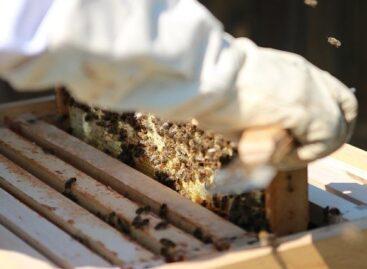They expect little rapeseed and acacia honey this year
Mild winters and early spring have favored the development of bee colonies, but this year’s rapeseed and acacia honey production may be weaker due to prolonged drought and cooling at the end of March. However, due to the effects of the coronavirus epidemic, there has been an increased interest in Hungarian honey in foreign markets in the last month and a half, explains the Hungarian Nation on Tuesday.

Thanks to the mild winter, the so-called generational change – when the winter bees die and are replaced by new ones – did not happen suddenly, so the bees also had time to prepare – Bross Péter President of the National Hungarian Beekeeping Association (OMME) told the newspaper. According to the expert, beekeepers cannot be optimistic nonetheless. The cold invasion in late March and early April caused damage to plants in many parts of the country, and acacia-sensitive acacia, like fruit trees, suffered from cooling. (MTI)
Related news
Farmer-centric agricultural policy after 2027 receives unanimous support
The EU member states’ agriculture ministers have adopted Council conclusions…
Read more >It is important that the post-2027 agricultural policy makes the EU’s agriculture farmer-friendly
It is important to discuss how the conclusions on the…
Read more >AM: the importance of the beekeeping sector goes beyond itself
The importance of the beekeeping sector goes beyond itself, honey…
Read more >Related news
The Christmas season is starting earlier and earlier: value for money is the key
This year, 40 percent of Hungarians brought their Christmas shopping…
Read more >They want it to be premium, but also sustainable – expectations of the youngest generation
GlobalData’s latest report, “Demographics in Retail and Apparel” – which…
Read more >In six months, consumers donated 100 million forints to charitable causes through the mandatory redemption system
Through the deposit bottle return system, which began six months…
Read more >







